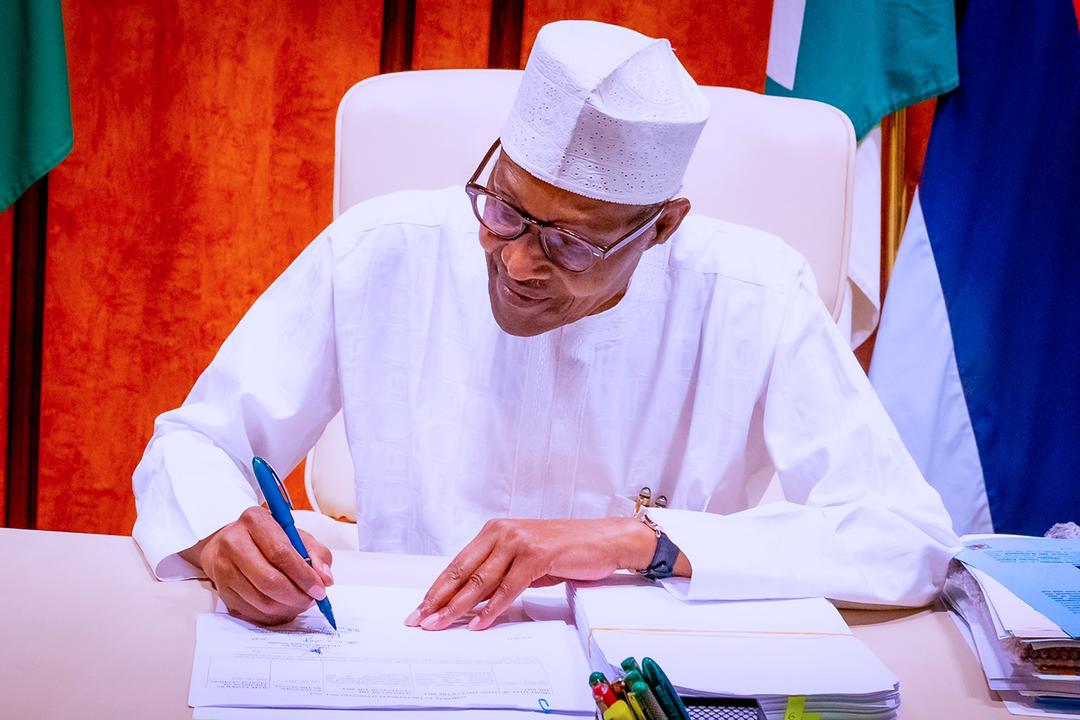President Muhammadu Buhari’s letter to the Senate seeking approval for additional borrowing is incongruous with the atmosphere in the country. With N33 trillion debts hanging over the neck of the current and future generations, the government’s decision for a fresh loan has set tongues wagging. In fact, in the past six years of the Buhari administration alone, Nigeria has had an accumulated debt of N17.06 trillion, representing a 173.2 per cent increase from when he was elected president in 2015.
The breakdown, according to the Budget Office’s medium-term expenditure framework and fiscal strategy paper from 2015, showed that the current administration incurred N7.63 trillion in domestic debt from June 2015 to December 2020.
- SERAP asks Lawan, Gbajabiamila to reject Buhari’s fresh $4bn, €710m loan
- PODCAST: ‘Generators Are Harmful’, Can Nigerians Abandon Them?
On external borrowings, the administration increased the nation’s debt from $7.3 billion in 2015 to $28.57 billion as of December 2020.
In his latest letter dated August 24, 2021, but read on the floor last week, the president said the new debts would be used to execute projects listed in the 2018-2021 Federal Government Borrowing Plan.
The sovereign loans being sought would come from the World Bank, French Development Agency (AFD), China-Exim Bank, International Fund for Agricultural Development (IFAD), Credit Suisse Group and Standard Chartered/China Export and Credit (SINOSURE) in the total sum of $4,054,476,863.00; €710,000,000.00 and Grant Component of $125,000,000.00. According to President Buhari, the loans would be used to fund federal and state projects in key sectors, such as infrastructure, health, agriculture and food security, energy, education and human capital development and COVID-19 response efforts.
To counter outcries over mounting debts, government officials have argued that Nigeria’s national debt is not too high when calculated as a percentage of our Gross Domestic Product (GDP). As of 2020, the debt was put at 36 per cent of our GDP. However, there is hardly evidence that our national debt is boosting the economy the way it is applied in other countries. For instance, China’s national debt to GDP is put at 54.44 per cent, but on the flip side, China is the second-largest economy in the world, so its debt is channelled into the production of goods for export. Germany’s national debt to GDP is also at about 50 per cent, but Germany has the most robust economy in Europe today. It follows, therefore, that the debts have a positive impact on the Chinese and German economies.
Conversely, Nigeria’s debt has not positively impacted the economy, rather it now swallows 90 per cent of the country’s revenue from diverse sources. Nigerians are made to tighten their belt to an unbearable limit as government prioritises debt servicing. Worse still, as some of the debts are meant for infrastructural projects, the dollars, especially those from bilateral loans, rather than reflate Nigeria’s purse, would be channelled into the purchase of equipment from lender-countries. This way the loans benefit the lender nations more than they boost our economy.
As economists have argued, wise borrowings occur when they are applied to stimulate the production of goods for export. We understand that part of the current loan will be used to revive the Ajaokuta Steel Company, which has remained epileptic since the 1980s, though it is 90 per cent completed. In this case, we call on government to ensure the loan is applied effectively to shore up steel production for domestic use and for export. Unless borrowing translates to measurable economic development, it is nothing but the enslavement of the future generation who would have to repay the money. This has been the tragedy of the country over the years, which is why caution must be applied in collecting loans.
If previous loans had led to economic growth, Nigeria would have, by now, joined the ranks of developing countries, like Brazil, South Korea, India, Pakistan, Malaysia, Indonesia and even Singapore, with whom Nigeria began economic development plans in the 1970s. With half-hearted approaches to economic development, we have failed to follow through in the implementation of programmes and projects for which we have accumulated debts. Some projects costs were inflated, while executions were frustrated due to corruption, just as many more have been abandoned. This is not how to develop Nigeria.
To control our lust for external loans for almost every conceived project, we call on government to reduce public expenditure and curtail the profligate lifestyles among political office holders. It is insensitive for government to borrow to fund infrastructure, while political office holders, despite shortfalls in revenue, throw lavish weddings and conduct expensive burials. Nigeria borrows to fund projects, but public officials spray dollars at social events. Instead of taking multilateral and bilateral loans, government must, first, block the loopholes exploited by public officials for siphoning funds from our commonwealth. Also, government must do full disclosure on any loan it hopes to take. That should include the amount, how much the country will have to pay back, including interest rates and its payment plan. We must not be fastened to unnecessary debt burdens.

 Join Daily Trust WhatsApp Community For Quick Access To News and Happenings Around You.
Join Daily Trust WhatsApp Community For Quick Access To News and Happenings Around You.


